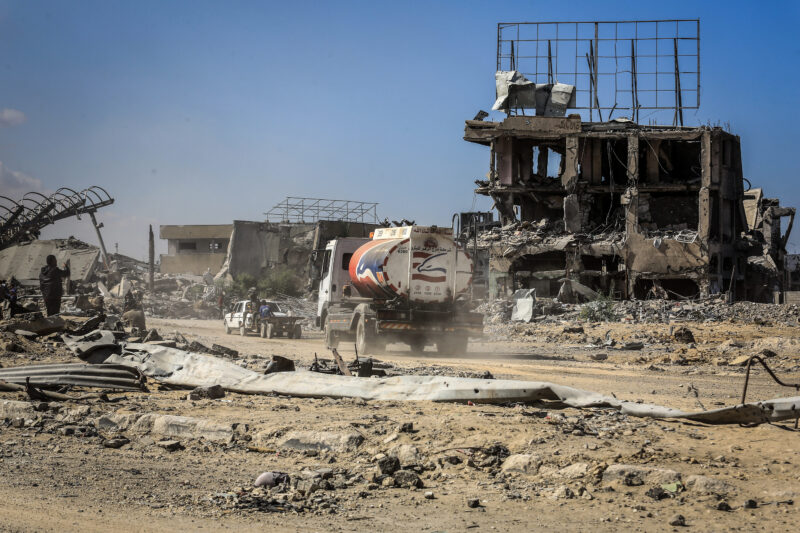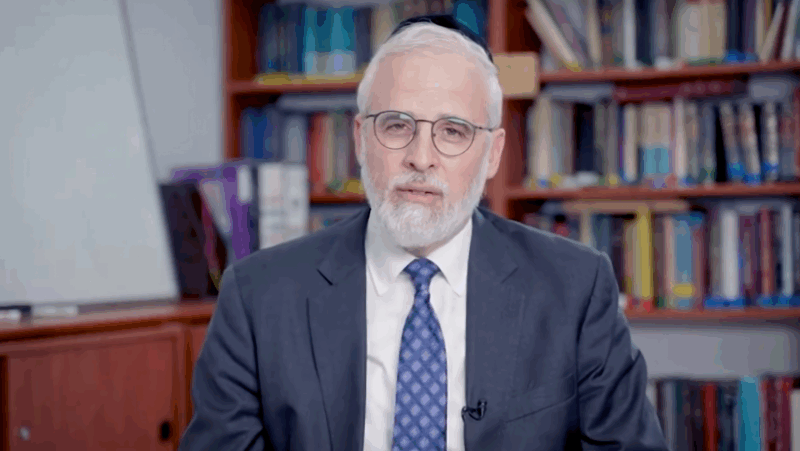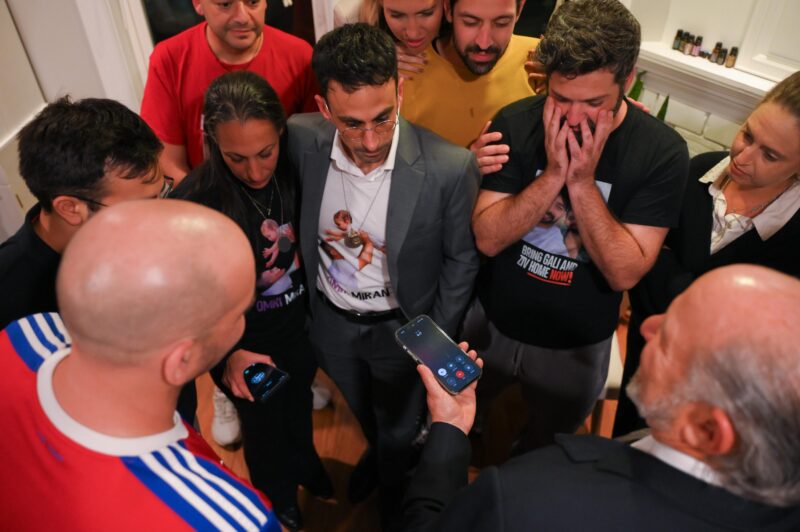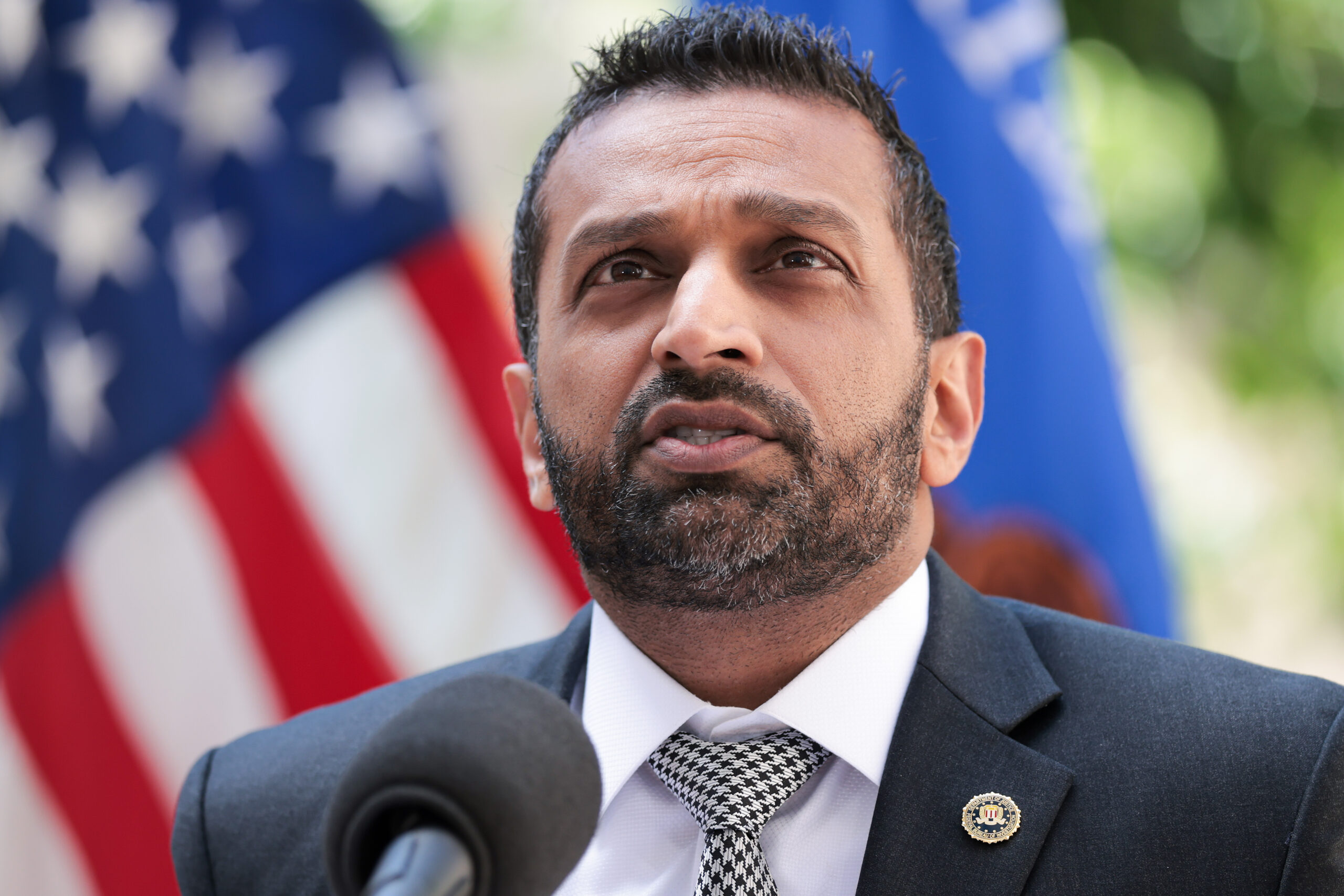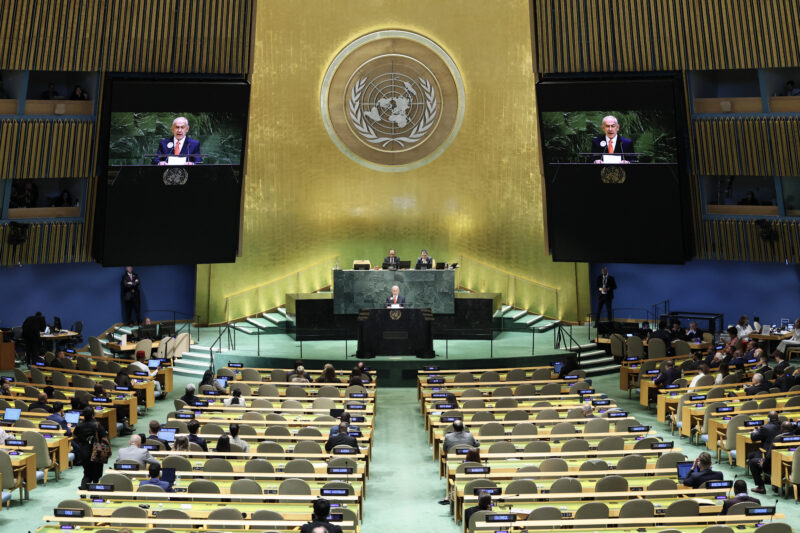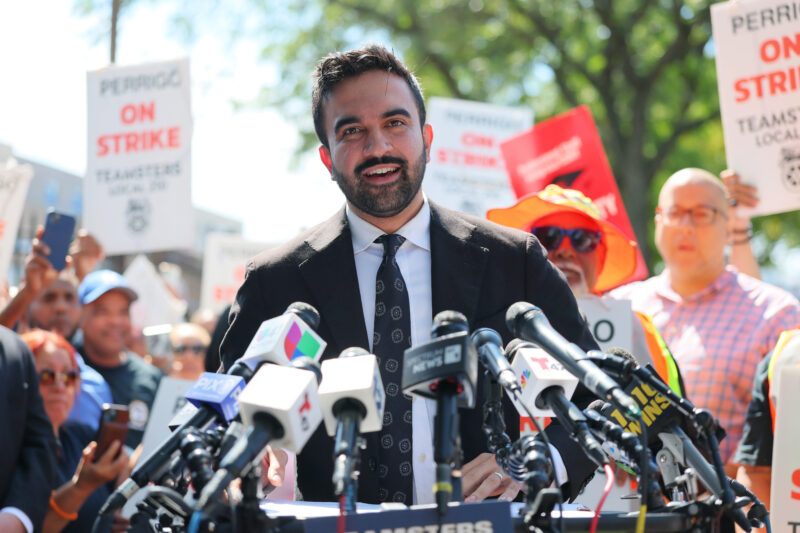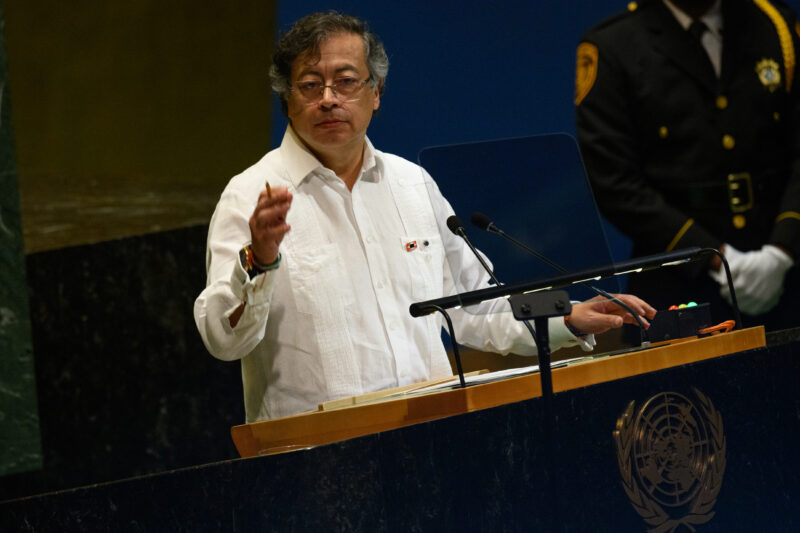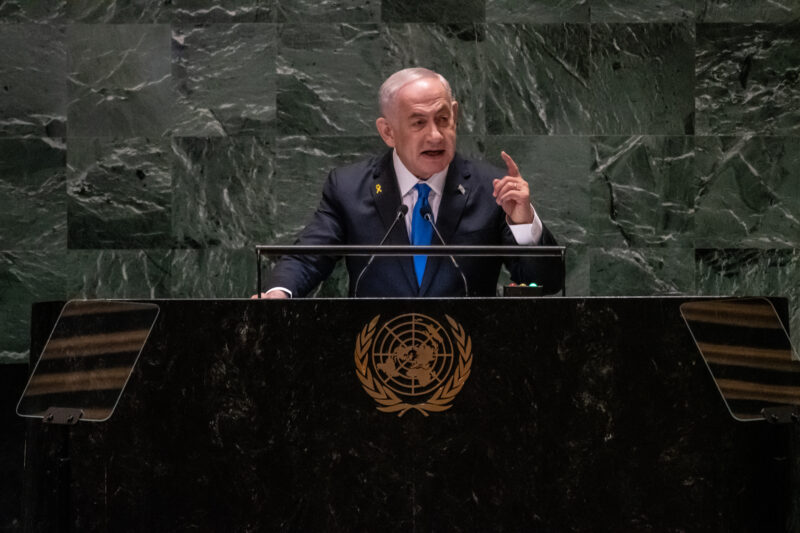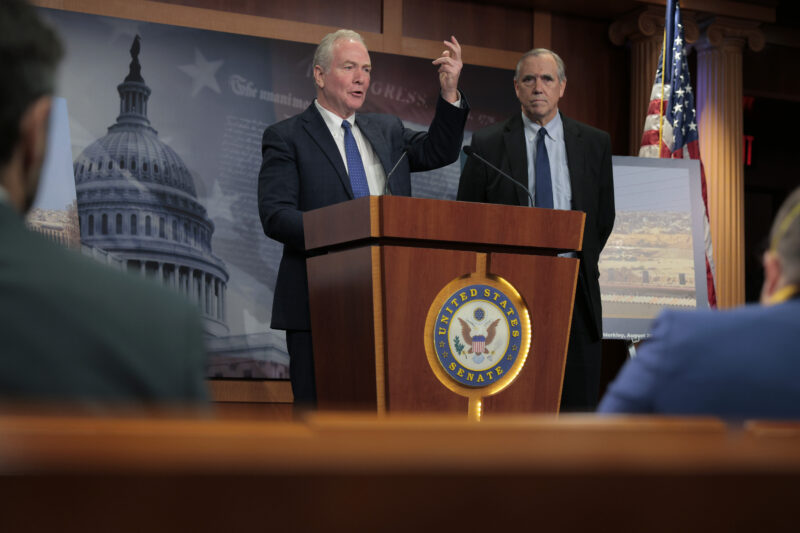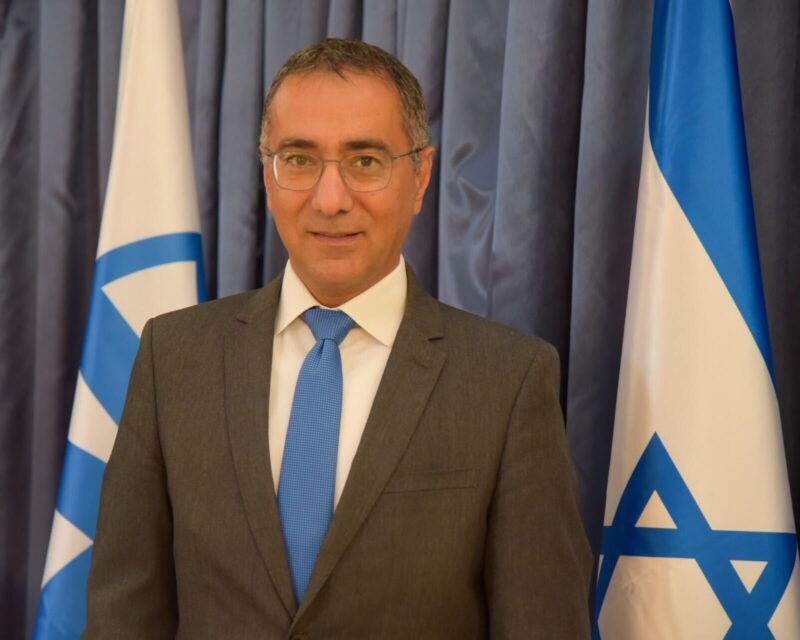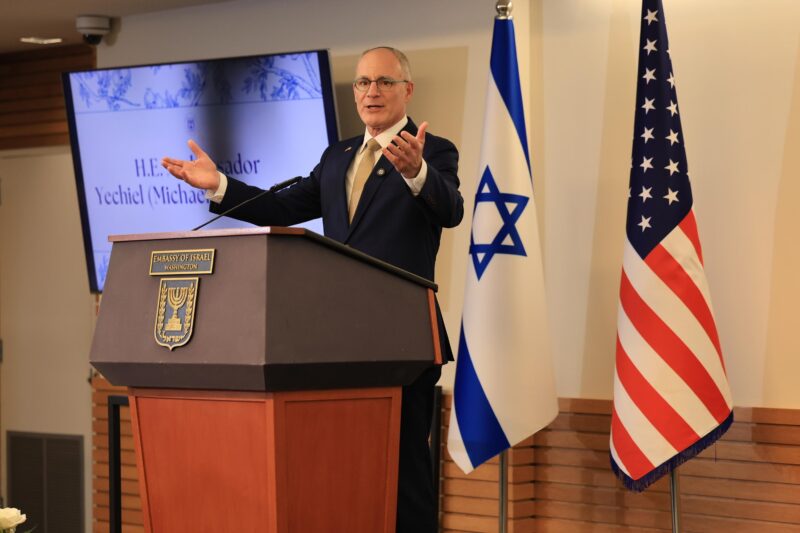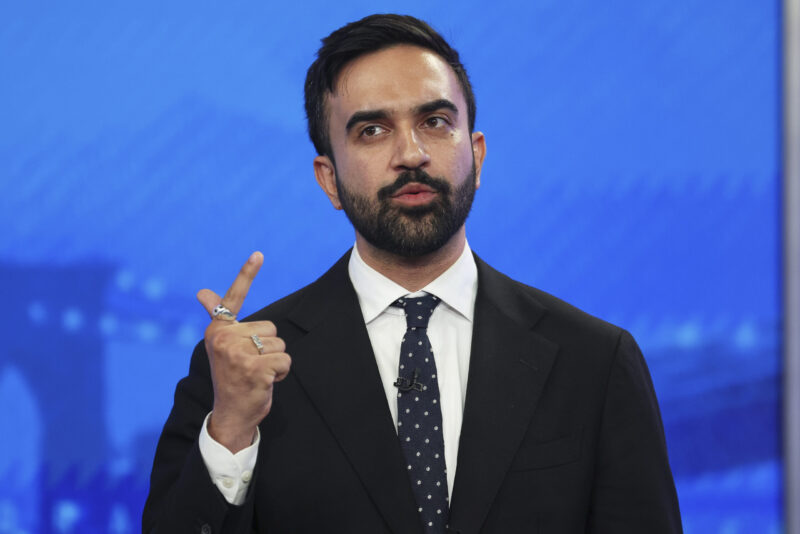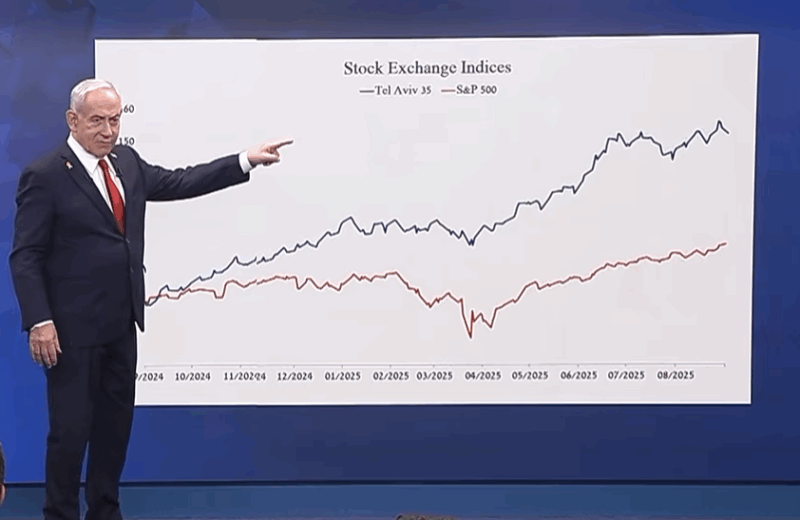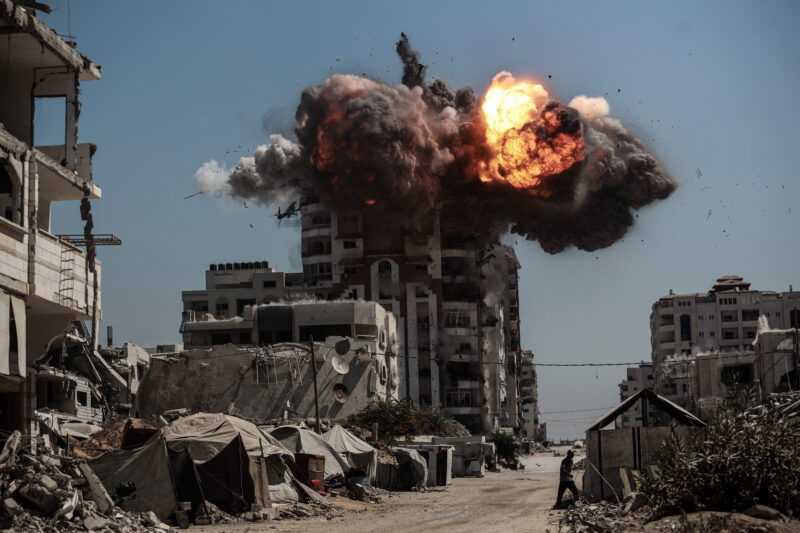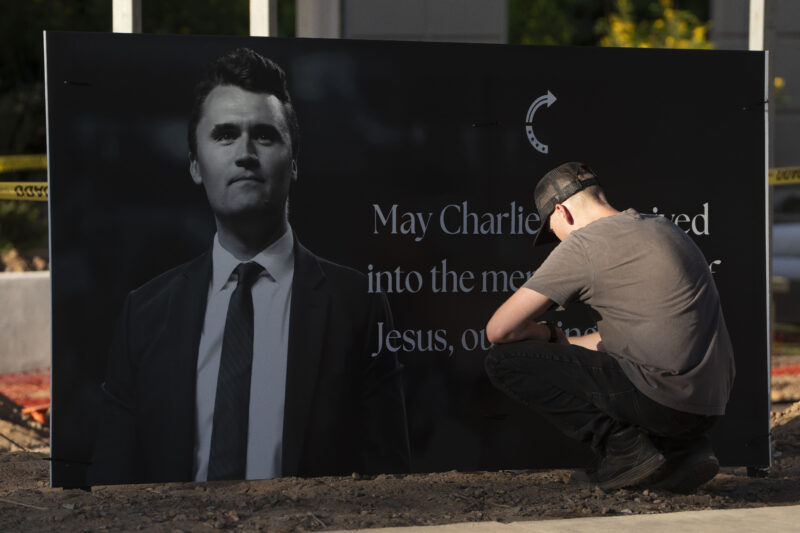The Israeli prime minister’s statement came after President Donald Trump said he’s ‘not happy’ about the attack
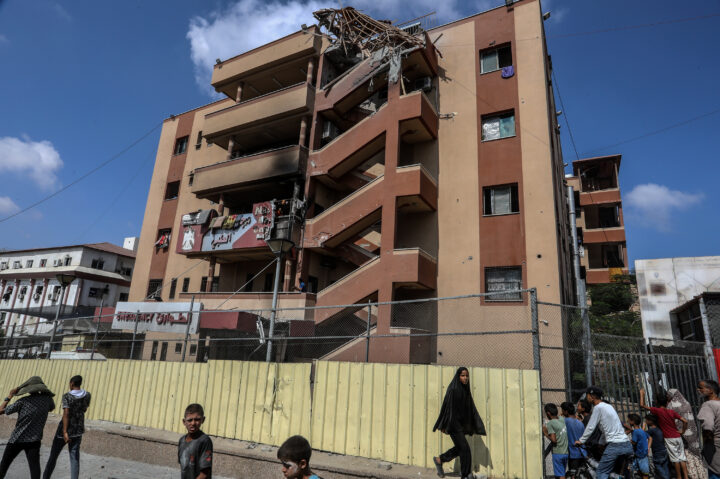
Abed Rahim Khatib/picture alliance via Getty Images
A view of Nasser hospital in Gaza, that was damaged by an Israeli strike on August 25, 2025.
An Israeli strike on a Gaza hospital that reportedly killed 20 people, including four journalists, was a “tragic mishap,” Israeli Prime Minister Benjamin Netanyahu said on Monday, not long after President Donald Trump criticized the attack.
“Israel deeply regrets the tragic mishap that occurred today at the Nasser Hospital in Gaza. Israel values the work of journalists, medical staff and all civilians,” the Prime Minister’s Office said in a statement. “The military authorities are conducting a thorough investigation. Our war is with Hamas terrorists. Our just goals are defeating Hamas and bringing our hostages home.”
Trump told reporters in the Oval Office that he is “not happy” about Israel’s strike on the Nasser Hospital, in the southern Gaza Strip.
“I’m not happy about it. I don’t want to see it,” Trump said, while noting that he did not know the details of the strike.
The president added that he is also committed to getting the remaining hostages out of Gaza, though he expressed doubt that a deal would come through.
“At the same time,” he said, “we have to end that whole nightmare. I’m the one that got the hostages out. I got them out, all of them. [Middle East envoy] Steve Witkoff has been amazing.”
Israel has said that 20 living hostages are still being held in Gaza, but Trump on Monday repeated a claim that the true number is “probably a little bit less than 20, because I think one or two are gone.” Israeli officials have not said that any of the 20 hostages believed to be alive have died recently.
Hamas, Trump said, is unlikely to release the hostages.
“I said a long time ago I’m going to get them out, but when we get down to that final 10 or 20, these people aren’t going to release them, because [Hamas is] dead after they release them,” Trump said. “It’s a nasty situation, very nasty. Horrible thing.”
The Israeli Defense Forces announced that it would conduct an inquiry into the attack. “The IDF regrets any harm to uninvolved individuals and does not target journalists as such. The IDF acts to mitigate harm to uninvolved individuals as much as possible while maintaining the safety of IDF troops,” IDF international spokesperson Lt. Col. Nadav Shoshani said.
‘Don’t Feed the Lion,’ written by Bianna Golodryga and Yonit Levi, opens a dialogue for kids and their communities on how to stand up to hate

The rise of antisemitism has dominated breaking news headlines, films and books in recent years. But two leading journalists noticed a void — a lack of resources in how to address the subject matter with young readers.
Concerned about what they observed, CNN anchor Bianna Golodryga and Yonit Levi, an anchor on Israel’s Channel 12, joined forces to write Don’t Feed the Lion, a new novel geared towards middle schoolers.
The book tells the story of three children in Chicago who experience antisemitism firsthand at school when a soccer star makes an antisemitic remark and a swastika appears on a locker. Theo, his sister Annie and their new friend Gabe each struggle with how to speak up and confront hate.
The book comes as antisemitism and anti-Israel sentiment has increasingly impacted K-12 classrooms nationwide in the aftermath of the Oct. 7, 2023, Hamas terror attacks on Israel and ensuing war in Gaza.
“We approached this project wearing three hats: as journalists who seek clarity, as Jews who feel the weight of history, and as mothers who want our children to live in a world that is kinder and more just,” Golodryga and Levi, both first time authors, told Jewish Insider in a joint statement.
“Empathy doesn’t happen in silence. We wrote this to help open dialogue between kids, parents, teachers, and communities, especially in times like these,” the veteran reporters said.
Don’t Feed the Lion, published by Arcadia Children’s Books, goes on sale Nov. 11.
The ability to try to authenticate a statistic by attributing it to an official government source, while knowing that the source is unreliable, can serve as the basis for an inaccurate narrative with wide-ranging effects
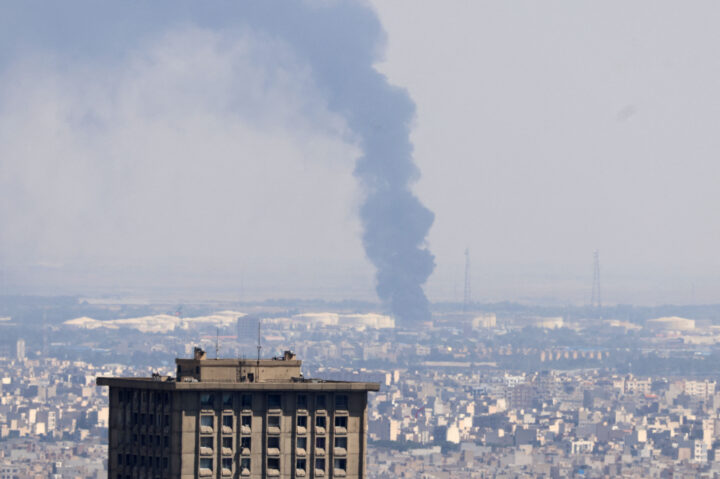
ATTA KENARE/AFP via Getty Images
Smoke billows in the distance from an oil refinery following an Israeli strike on the Iranian capital Tehran on June 17, 2025.
On Thursday, NBC News reported a claim from Iran’s Ministry of Health that “over 2,500 injured people were treated in public and university hospitals, with 1,600 discharged and about 500 still hospitalized.” Earlier this week, CBS News reported 224 Iranians were dead from Israeli airstrikes, also attributed to Iran’s Ministry of Health.
There is no free press in Iran, and journalists have been arrested and imprisoned simply for practicing journalism in the Islamic Republic. There is no real way to verify the Iranian Health Ministry’s numbers, and so many journalists report them, unscrupulously.
In a fast-paced, constantly evolving news environment, accuracy is paramount. The ability to try to authenticate a statistic by attributing it to an official government source, while knowing that the source is unreliable, can serve as the basis for an inaccurate narrative with wide-ranging effects.
Take, for example, the Al-Alhi Hospital incident in October 2023, when the most widely read Western media outlets reported on an Israeli strike on a Gaza hospital, later confirmed to have been a misfired Palestinian Islamic Jihad rocket. In the aftermath of the hospital incident — which many outlets, including The New York Times, had to walk back — Jordanian King Abdullah II canceled an in-person summit with President Joe Biden in Amman, potentially altering the course of the conflict.
“Israel strikes Iranian state TV, warns people to evacuate Tehran after accusing Iran of targeting civilians,” was a CBS News headline on Monday evening. Hours prior, an Iranian ballistic missile salvo targeted dozens of locations across the country — with one missile landing in the heart of a residential area of Tel Aviv.
Further missing in reports of fatalities in the region is the identity of those killed. Take, for example, an Israeli attack in December on the port of Hodeidah and Sana’a airport in Yemen, both utilized by the Houthis. “At least four people were killed and 21 others injured in the attack,” according to the New York Times report on the strike, filed by journalists in Israel and the United Arab Emirates who cited Yemeni state-run media and the country’s Ministry of Health.
Why were those people at a Houthi port known for serving as a point of transfer for Iranian weapons? Were those who were killed Houthi officials? Were they engaged in activity that posed an active and immediate threat to Israelis? The reader will never know anything beyond that the numbers provided by the Houthi-run Health Ministry in Yemen “could not be independently verified.”
It’s a regular occurrence in Israel-related reporting, where reports on West Bank clashes fail to mention when those killed are members of Hamas, Palestinian Islamic Jihad or one of the many armed militant groups operating in the territory.
More than 20 months after Hamas terrorists tore through southern Israel, raping, burning and killing people and destroying obstacles in their way, foreign reporters in the region continue to use casualty figures from the terror group’s Gaza Ministry of Health, noting only that the group doesn’t distinguish between civilians and combatants.
Concerns over the reliance on the Hamas-run Gaza Health Ministry were so severe that American legislators passed — on a bipartisan basis — an amendment to last year’s State, Foreign Operations and Related Programs Appropriations bill barring the State Department from using the health ministry’s statistics. Read our report here.
An ABC News report from earlier this week on violence near humanitarian aid distribution sites in Gaza leads with the headline “More than 30 killed at controversial foundation’s aid distribution sites in Gaza: Health officials,” giving an air of legitimacy to the claim — even though a reader would have to move down to the story before learning that those health officials came from the “Hamas-run Gaza Ministry of Health.” And nowhere in the story does ABC News note that the Gaza Health Ministry doesn’t distinguish between civilians and combatants.
The inclination to publish talking points and statistics from terror groups and regimes incentivizes a playbook for malign actors — from Iran to the Houthis and Hamas — to provide misleading casualty figures for the media to carry that lack the intricacies and nuances necessary in such reporting.
And in this new media reality, misinformation and malign actors — already benefiting from sympathetic media organizations — thrive.





